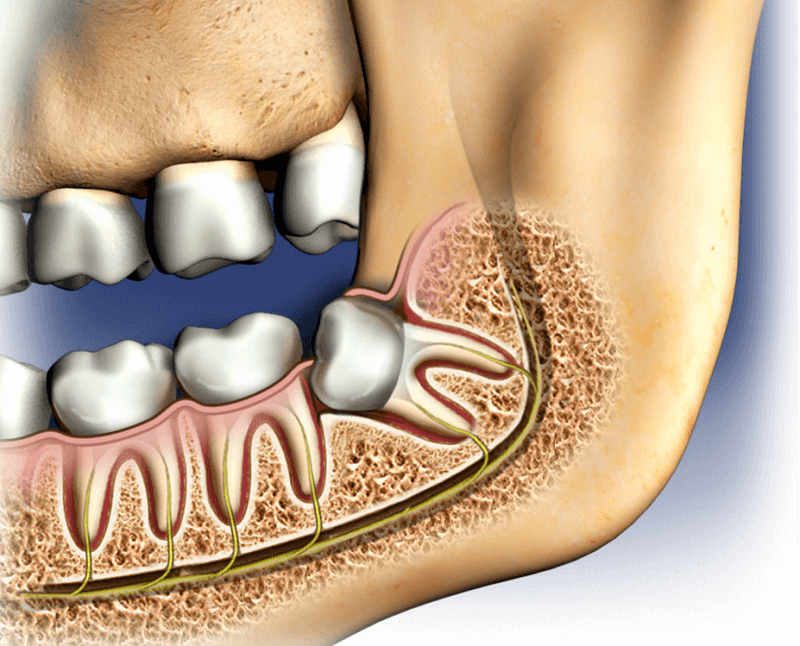Checking Out Various Sedation Options for a Comfy Wisdom Pearly Whites Extraction Experience
The use of sedation during such procedures has become increasingly common to relieve stress and anxiety and discomfort. With a variety of sedation choices available, from local anesthesia to basic anesthesia, each technique provides differing degrees of relaxation and discomfort control.
Regional Anesthesia
Local anesthesia is a generally utilized method for numbing certain locations of the mouth throughout knowledge teeth removal procedures. By providing a neighborhood anesthetic, such as lidocaine, a dental professional can make certain that the client continues to be pain-free and comfy throughout the extraction process. Regional anesthetic works by briefly blocking the nerves in the mouth, avoiding them from sending out pain signals to the mind. This allows the dental expert to do the extraction without triggering any kind of pain to the patient.
One of the key benefits of neighborhood anesthesia is its targeted numbing effect, which implies that only the specific location being dealt with is impacted. This local method lessens the danger of systemic adverse effects and permits a quicker recuperation post-procedure. Furthermore, local anesthesia is taken into consideration to be a risk-free and routine practice in dental care, with very little dangers involved when administered by an experienced professional.
Nitrous Oxide
Nitrous oxide, commonly known as chuckling gas, is a kind of sedation commonly used in dental care to aid individuals unwind during dental treatments. This sedation option allows the patient to stay aware and receptive throughout the procedure while really feeling at simplicity and comfy.
When the mask is gotten rid of, the results of the gas use off promptly, allowing clients to resume their regular activities without lingering sedative impacts. Nitrous oxide is ideal for clients of all ages, making it a versatile sedation alternative for knowledge teeth extractions and other dental treatments.
Oral Sedation
Oral sedation, a pharmacological approach utilized in dental care, entails the management of sedative medications by mouth to generate an unwinded state during oral procedures. The medications recommended for oral sedation belong to a course of medications called benzodiazepines, which have sedative, anxiolytic, and amnesic residential properties.
Among the main benefits of oral sedation is its simplicity of management. Unlike intravenous sedation, dental sedation does not require injections or needles, making it a much more comfy choice for individuals with an anxiety of needles. Furthermore, dental sedation is taken into consideration efficient and risk-free when administered by skilled oral experts. Nevertheless, it is essential for patients to comply with pre-operative directions offered by their dentist, such as abstaining from consuming alcohol or consuming before the treatment to make certain the sedative medication works as planned.
IV Sedation
Carried out intravenously by trained physician, IV sedation is an effective approach utilized to cause a regulated state of deep relaxation and unfamiliarity throughout dental procedures. Unlike oral sedation, which can be unforeseeable in its impacts, IV sedation enables exact control over the degree of sedation, making it a suitable selection for complex procedures like knowledge teeth extractions.
Throughout IV sedation, a sedative medication is supplied directly check my site right into the bloodstream with a blood vessel, enabling it to take effect you could check here quickly and efficiently. This approach guarantees that the person continues to be unaware and comfy of the treatment while still maintaining vital features such as breathing and heart rate.
Among the key advantages of IV sedation is its ability to provide a much deeper level of sedation compared to various other techniques, making it especially appropriate for individuals with high degrees of anxiousness or those undergoing comprehensive oral job (wisdom teeth removal aspendale). Additionally, the results of IV sedation generally disappear slowly after the treatment, lowering the chance of grogginess or sticking around side impacts. On the whole, IV sedation supplies a reliable and safe choice for making certain a comfortable and worry-free experience throughout knowledge teeth extraction

General Anesthetic
Having actually discussed the benefits of IV sedation for wisdom teeth removal, the usage of basic anesthetic supplies an alternate choice for people requiring a much deeper degree of unfamiliarity during oral treatments. General anesthesia induces a regulated state of unfamiliarity, making certain the person really feels no discomfort or discomfort throughout the extraction process. This method is particularly useful for individuals with serious oral anxiety, complicated medical needs, or have a peek at this site those undergoing numerous extractions simultaneously.
General anesthetic is administered by a trained anesthesiologist that carefully keeps track of the patient's crucial signs throughout the treatment. It includes using intravenous medicines or inhaled gases to cause a state of unconsciousness. While under basic anesthetic, the client will not understand the surgical treatment, experience any kind of pain, or have any recollection of the procedure later.
Although basic anesthesia is safe when administered by certified professionals, it brings a slightly higher risk compared to other sedation choices - wisdom teeth removal aspendale. Individuals considering basic anesthetic for knowledge teeth extraction need to talk about the prospective risks and advantages with their dental expert or dental specialist to make an informed decision based upon their specific demands and case history

Final Thought
In final thought, different sedation options are offered to ensure a comfy knowledge teeth extraction experience. Dental sedation and IV sedation deal much deeper degrees of relaxation, depending on the individual's needs.
Nitrous oxide is suitable for people of all ages, making it a versatile sedation choice for wisdom teeth extractions and various other oral treatments.